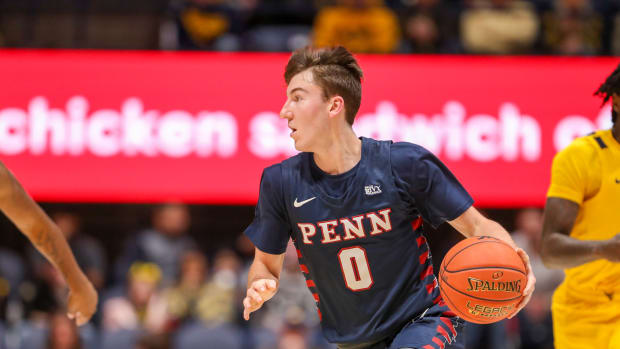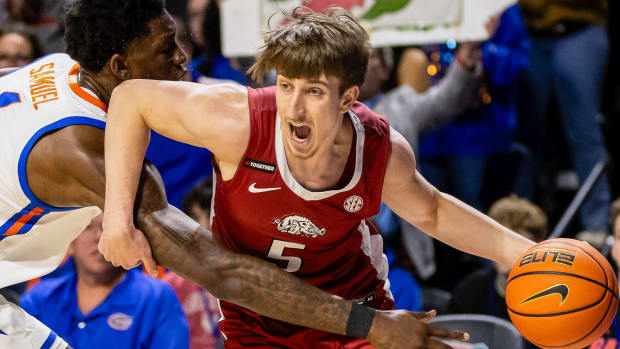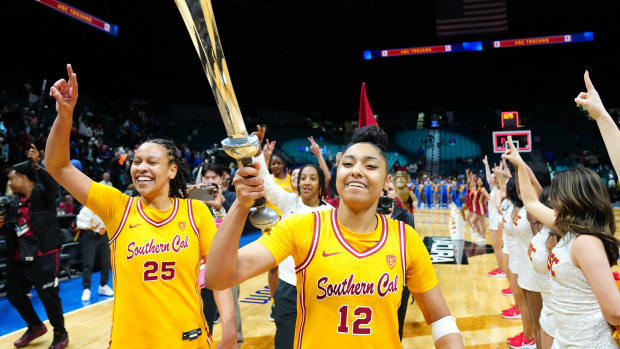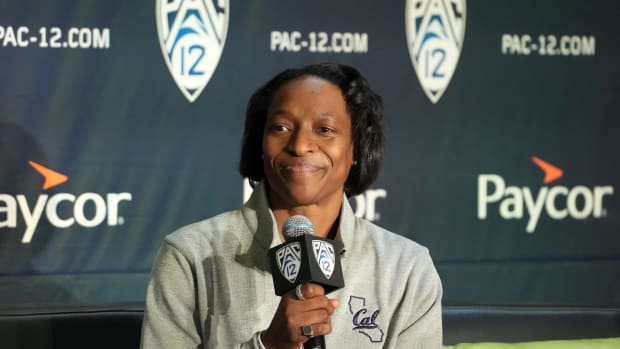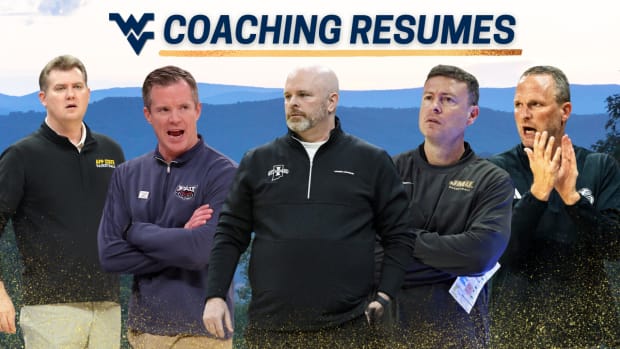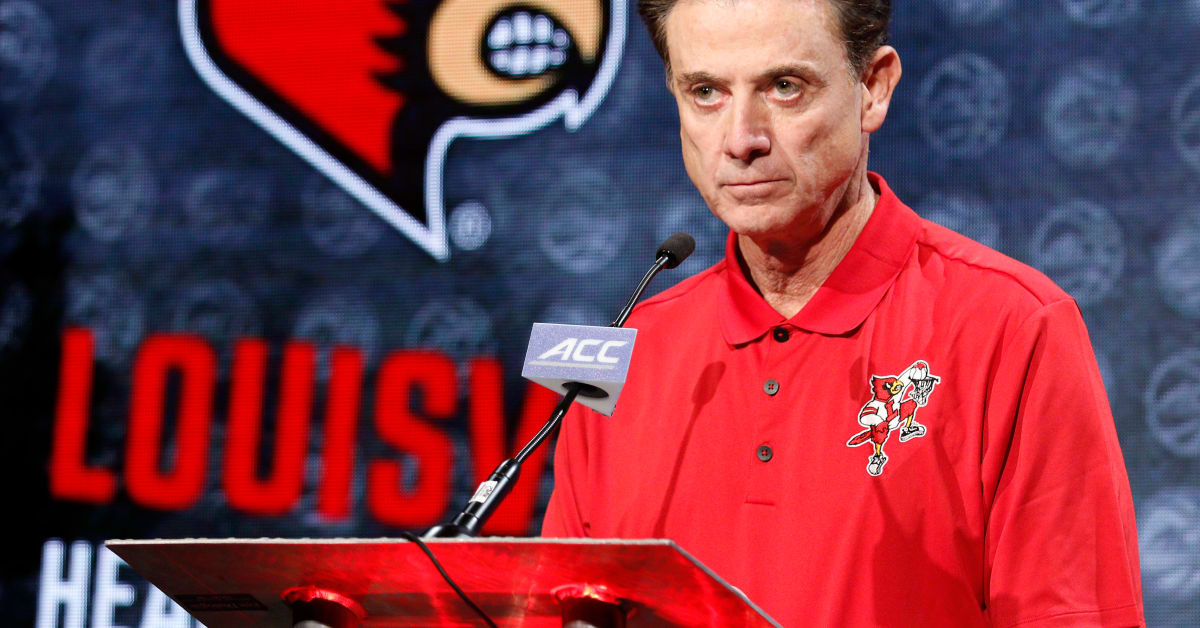
There’s Santa Claus, the Tooth Fairy … And Then, There’s the NCAA’s Ill-Fated IARP
The Independent Accountability Review Process, or IARP, was the big-word brainchild created in 2018 by a politician-led committee to save the flailing bureaucrats who oversee college athletics from themselves. In the end, it has become the biggest organizational failure in NCAA history, which is littered with failures.
There have been bigger philosophical failings. But in organizational terms, the IARP has become the new standard for NCAA self-sabotage. It is the association’s Frankenstein, a creature of its own making that has turned upon its creator.
This already was true before Thursday, but the IARP managed to outdo its own illogical self with its decision on a Louisville infractions case that has been festering like an untreated wound since 2017. Despite having corporate partner Adidas agree to pay recruit Brian Bowen $100,000 to sign with Louisville … despite an assistant coach being caught on FBI surveillance discussing a scheme to pay players in recruiting … despite being a repeat violator of major NCAA rules … Thursday’s ruling was essentially a non-ruling.
Almost everyone walks away without sanctions. (Hold that thought on the “almost” part.)
Louisville men’s basketball is released from five years in Shawshank, arms raised in the rain, free at last. The Cardinals received what has become the standard IARP Sanction Discount: probation, a $5,000 fine and some light recruiting restrictions. It’s a breathtaking escape from serious penalties for a program that was breaking rules shortly before being hammered for its previous scandal, which dealt with a staffer paying sex workers to entertain recruits and players in a campus dorm named for Rick Pitino’s late brother-in-law. It was a doozy.
(The Thursday reprieve has been greeted in a celebrating city by a misguided call by many fans to re-raise the school’s 2013 national championship banner, after that title was vacated by the NCAA in the sex workers case. Note to those folks: The Thursday ruling has nothing to do with that case. Take your surprise victories where you can get them, but that was an L that isn’t being reversed.)
Fine and good, it can be argued Louisville basketball has suffered enough—although it also could be argued that is due to its own mismanagement more than the burden of prolonged investigation. Kansas, Auburn, Arizona and LSU were all caught up in the same FBI probe, and all have done far better on the court than the Cardinals in recent years. The program is a shell of its former self, on its fourth coach since Pitino and coming off an exhibition loss Sunday against Division II Lenoir-Rhyne. (A postseason ban might not have even affected this team.)
There are two key parts of this ruling that went Louisville’s way: One, the Independent Resolution Panel (IRP, more initials) brushed aside any repeat-violator impact in the space of two sentences on Page 73 of its ruling, so there was no added jeopardy there; two, the IRP decided Adidas was not a representative of the school’s athletic interests, and any pay-for-play shenanigans in which the shoe company was involved were not Louisville’s problem. That’s a major development not only for Louisville, but for Kansas, which has been fighting for years on that front. If the Jayhawks get the same hearing panel as the Cardinals—or one predisposed to ruling the same way—they may skate in similarly painless fashion.

Rick Pitino was not penalized or disciplined for his knowledge around Louisville’s recruiting scandal.
Bob Leverone/AP
The IARP is a full believer in Santa Claus, the Easter Bunny, the Tooth Fairy and shoe companies conspiring against the unwitting schools that are wearing their gear by helping them sign star players.
But the truly surprising part of this IARP ruling is that Pitino walks away with a pat on the back for “promoting an atmosphere of compliance” and zero sanctions. His former assistant coaches do not—here’s the “almost” caveat—with Kenny Johnson and Jordan Fair both catching two-year show-cause rulings. That will inhibit Johnson’s recruiting duties at Rhode Island, where he currently works, and seemingly be detrimental to his future employment. Fair is out of college coaching.
Years ago, the NCAA adopted bylaw 11.1.1.1, Responsibility of a Head Coach. The first sentence states: “An institution’s head coach is presumed to be responsible for the actions of all institutional staff members who report, directly or indirectly, to the head coach.” This was a bylaw actively sought by the NCAA membership, which was wary of supposedly oblivious head coaches avoiding sanctions while their assistant coaches took the fall.
As is so often the case in NCAA jurisprudence, the bylaw has been circumvented more easily than anticipated. Head coaches held meetings in which they told everyone to follow the rules, then kept falling back on the I had no idea that was happening crutch when the rules were broken. Pitino has leaned heavily on that crutch. The sex workers incident was all the fault of then-Louisivlle director of operations Andre McGee (who has been run out of the profession). The Brian Bowen payment scheme and other violations in this case were all Fair and Johnson’s fault. It might as well be the 1980s all over again.
The NCAA actually held Pitino somewhat accountable in the first case, suspending him for five Atlantic Coast Conference games in the 2017–18 season. But Louisville fired him before that season even started for the cumulative effect of two scandals. So Pitino never served that suspension and won’t serve one now. He’s had two major infractions cases within his program without sitting out a game.
His biggest win here was having this case decided in early November, two months before the latest rule designed to hold head coaches accountable will take effect. That calls for strict liability—the coach is responsible for violations within his program, and will be charged as such. No arguments to the contrary will be considered.
Pitino barely beats that Jan. 1, 2023, deadline. For once, the dawdling IARP moved just fast enough to help someone out.
And after banging hard on the word “exonerated” in a press conference at Iona on Thursday, Pitino’s emergence from under this dark cloud could open the way to a return to a big-time coaching job. He was asked about that and did little to hide his desire. “That really has nothing to do with it,” he said. “I enjoy where I live. I love the players I'm coaching. It's really about the players, not about me." That can be directly translated to: Call me, I’m ready. And even at age 70, his work thus far at Iona illustrates Pitino still has a masterful coaching gift.
If Pitino can walk away from this case unencumbered by any suspension, maybe Kansas should un-suspend Bill Self after sidelining him for the first four games of this season. Might as well let everyone involved in the FBI investigation of the sport in 2017 go at this point. (Oklahoma State has a right to be livid, having received the only postseason ban to date.)
This is the continuing fallout from turning over the most high-profile and complicated cases in college sports history to a start-up group that came into being because NCAA president Mark Emmert panicked amid the federal investigation and put out a cry for help to a bunch of fellow bureaucrats. He put Condoleeza Rice in charge of a committee, which formed a committee, which became the IARP.
Many years and untold piles of billable hours later, the IARP has been busy deconstructing NCAA Enforcement cases and flouting NCAA membership desires. This is like a lawyer who goes through jury selection but fails to ask whether the jurors believe in the criminal justice system. By all appearances, the NCAA created a policy body that thinks the NCAA is full of crap. There is some validity to that sentiment, of course. The underlying problem with this entire expedition is that it has taken so long that the rules changed to a point where paying players is (more or less) allowable. No one much cares anymore whether Bowen or any other player got paid.
But they care—then and now—about competitive advantage and level playing fields. Some schools definitely gained an advantage by circumventing rules that others were adhering to. The IARP has, with a succession of strange rulings, excused all advantages gained. And there will be more of that to come from the worst entity the NCAA ever dreamed up.

